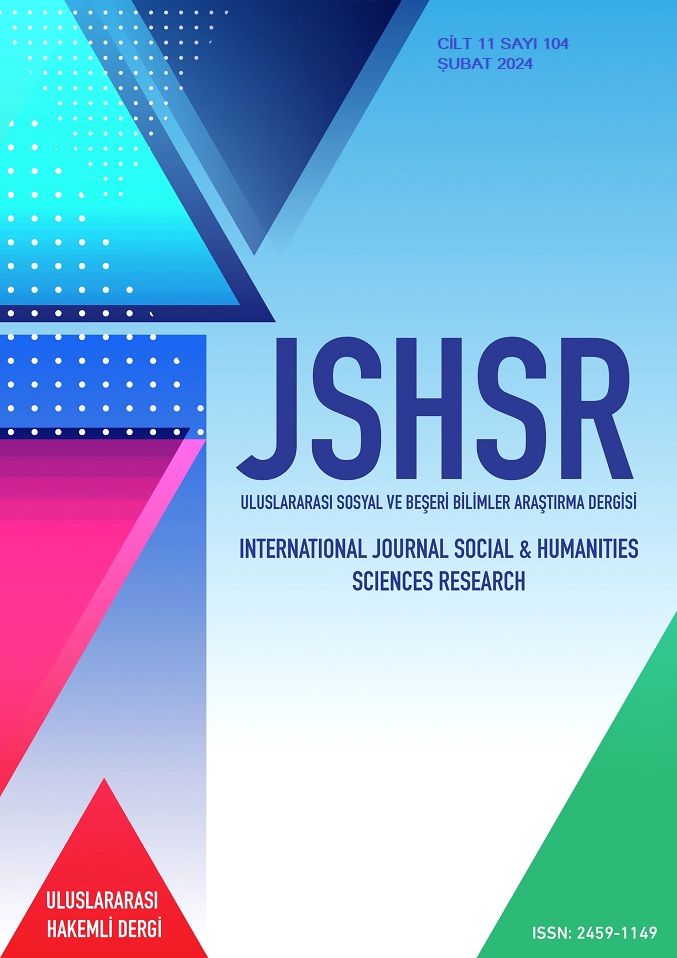A Comparative Analysis of the Approaches of Classical and Modern Guitar Methods to Speed
DOI:
https://doi.org/10.5281/zenodo.10732673Keywords:
Fernando Sor, Dionisio Aguado, Scott Tennant, Hubert Kappel, Classical Guitar, Speed, MethodAbstract
This study examines the first significant methods written for the Romantic guitar and the most recent methods for the Modern guitar in terms of their approach to the problem of guitar speed. The issue of guitar speed has been addressed in many methods written for the six-string guitar from various perspectives from the 19th century to the present day and ways of practicing have been suggested. Examining these methods, the study presents different pedagogical and stylistic approaches along with characteristics specific to the periods. Accordingly, Fernando Sor’s Méthode pour la Guitare and Dionisio Aguado’s Nuevo Método Para Guitarra from the Classical Period, and Scott Tennant’s Pumping Nylon: The Classical Guitarist’s Technique Handbook and Hubert Kappel’s The Bible of Classical Guitar Technique are analyzed comparatively from various aspects associated with speed. Techniques involving speed, a key problem in guitar, have been approached differently for methods developed in different periods. Speed can be a challenging factor in almost every musical instrument with many parameters in terms of performance. However, this is more problematic for many students and guitarists performing with classical guitar than with instruments such as piano or violin. The study makes comparisons primarily in terms of fast scale, arpeggio, and chord transitions. The composer-guitarist tradition of the Classical Period has become a virtuoso-guitarist tradition in the Modern Period. The study considers how this has affected approaches to speed. Finally, the study examines the differences between Sor and Aguado’s methods to those of Tennant and Kappel. Understanding the approaches of the methods written throughout different periods of guitar history regarding the issue of speed can provide new perspectives for today’s guitarists.
References
Aguado, D. (2004). Aguado New Guitar Method. Macaristan: Tecla Editions.
Ergüden, B. (2019). Klasik Gitarda Romantik ve Modern Teknik Metodların Bakış Açılarındaki Farklılıklar Yönünden Karşılaştırmalı Analizi. Asos Journal, (92), 145-164. http://dx.doi.org/10.16992/ASOS.14965
Grunfeld, F. V. (1969). The Art And Times of the Guitar. MacMillan Company.
Jeffery, B. (2020). Fernando Sor Composer and Guitarist. Tecla Editions.
Jeffery, B. (2013). The Complete Studies, Lessons and Exercises for Guitar. Tecla Editions.
Jeffery, B. (2001). Sor [Sors], (Joseph) Fernando (Macari). Grove Music Online. https://doi.org/10.1093/gmo/9781561592630.article.26246
Käppel, H. (2016). The Bible of Classical Guitar Technique. Almanya: AMA Verlag.
Morris, S. (2005). A Study of The Solo Guitar Répertoire of The Early Nineteenth Century. Kaliforniya: Claremont Graduate University.
Ophee, M. (1982). “The History of Apoyando.” The Guitar Review, (51), 11.
Romero, P. (1982). Guitar Style and Technique. New York: Bradley Publications.
Scheit, K. (1967). Musik Für Gitarre: Fernando Sor; Intermediate Studies. Viyana: Universal Editions.
Sor, F. (2003). Method for the Spanish Guitar. Tecla Editions.
Sor, F. (yk. 1890). Leçons Progressives, Op.31. No.12. Berlin: Nicolaus Simrock.
Sor, F. (yk. 1890). Leçons Progressives, Op.29. No.2. Berlin: Nicolaus Simrock.
Tennant, S. (2013). Pumping Nylon. ABD: Alfred Music.
Tsai, I. H. (2018). A Comparative Analysis of Fundamental Guitar Techniques Including Those of The Nineteenth Century and The Present. Indiana: Ball State University.
Wade, G. (2001). A Concise History of the Classical Guitar. Mel Bay Publications.
Van der Walt, C. S. (1996). The Relevance of the Teaching Methods of Dionisio Aguado, Fernando Sor and Andrés Segovia for Guitar Technique in the Late 20th Century. University of South Africa.
Downloads
Published
How to Cite
Issue
Section
License
Copyright (c) 2024 INTERNATIONAL JOURNAL OF SOCIAL HUMANITIES SCIENCES RESEARCH

This work is licensed under a Creative Commons Attribution 4.0 International License.


